Contents
- Introduction
- 1. Bill Gates: Consumers who are dissatisfied are the most valuable ones.
- 2. Mark Cuban: Think of your customers as your owners.
- 3. Jeff Bezos: Create a business based on universal human desires.
- 4. Evan Williams: Take it easy.
- 5. Michael Bloomberg: Constantly seek to expand your knowledge.
- 6. Elon Musk: Live your worst-case scenario to overcome your fear of failing.
- 7. Steve Case: Humans are the driving force behind everything.
- 8. Drew Houston: Chase a tennis ball like a dog.
- 9. Larry Page: Pursue ideas that scare others.
- 10. Steve Ballmer: Be tenacious instead of passionate.
- 11. Larry Ellison: Success breeds in those who fear failure.
- 12. Peter Thiel: Don’t switch gears until you’ve mastered one.
- 13. Kevin Systrom: Behavior is more persuasive than words.
- 14. Evan Spiegal: Concentrate on something you simply can’t give up.
Introduction
The rapid pace of technological advancement means there is always a place for new entrants, but that doesn’t mean starting a tech startup is a walk in the park. A good idea is only the beginning of what it takes to launch a successful business in any field; there is a lot of hustling and hard work involved. Each year, a new generation of entrepreneurs endeavors to leave their imprint on a tech sector with apparently endless prospects. They are cognizant of the fact that the ever-changing nature of the digital ecosystem entails a certain degree of uncertainty with each new opportunity. The tech sector is complex and ever-changing, so it’s important for startup founders to study the successes and failures of others in the field.
Entrepreneurs who are new to the tech industry should gather as much information as possible, sift through it, and assess what will genuinely benefit their businesses. Today, hundreds of entrepreneurs are searching for the secret to success, but there is no one-size-fits-all solution. The truth is that a tech entrepreneur’s journey is not one that can be simply replicated. However, there are a few pieces of advice from tech leaders that might be useful for tech entrepreneurs or people hoping to establish a company to be aware of or familiar with. In this blog we will look at some of the best pieces of advice from top 14 tech leaders for new entrepreneurs.
1. Bill Gates: Consumers who are dissatisfied are the most valuable ones.

Bill Gates, the co-founder of Microsoft, says, “Your most unhappy customers are your greatest source of learning.”
2. Mark Cuban: Think of your customers as your owners.
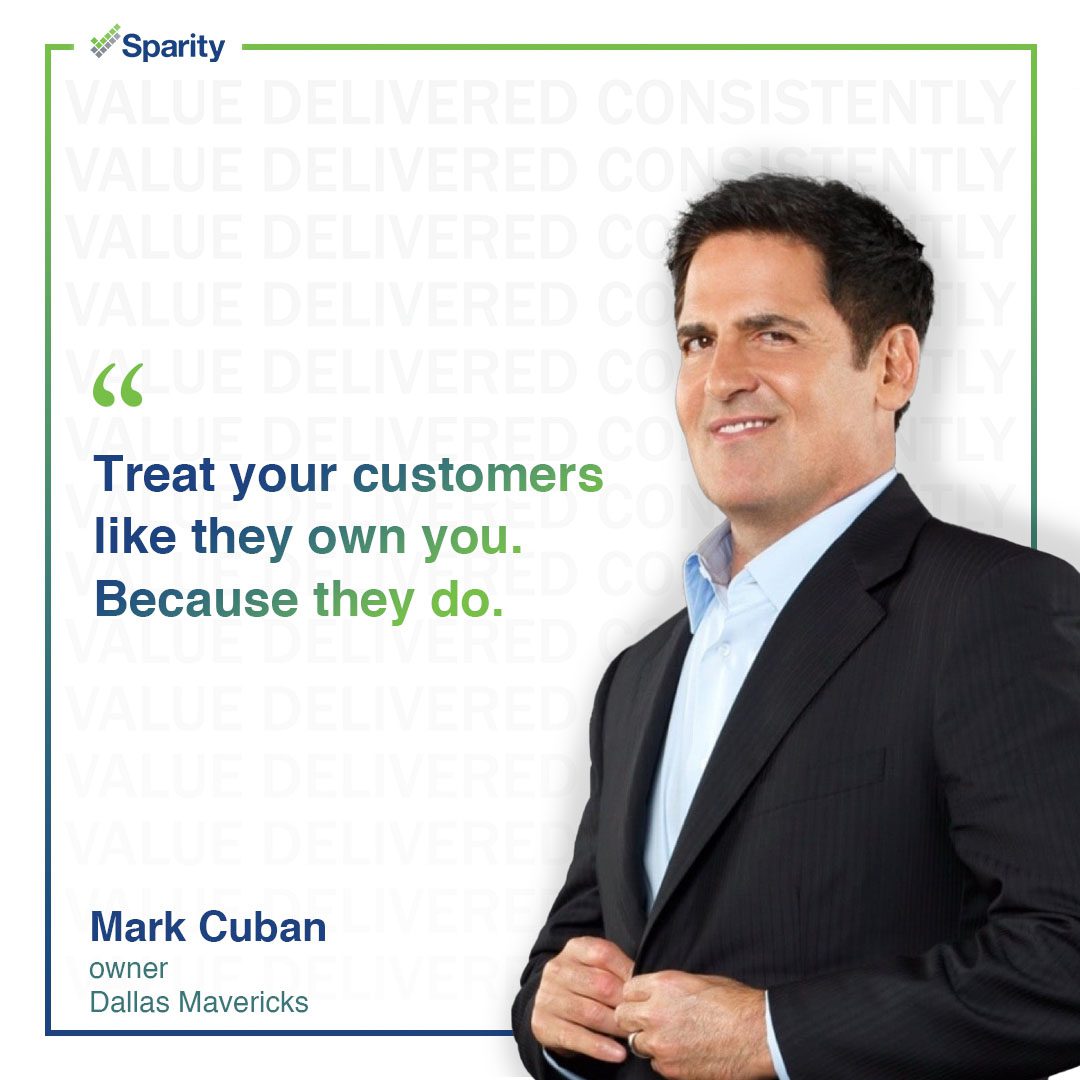
American billionaire entrepreneur Mark Cuban suggests, “Treat your customers like they own you. Because they do.”
3. Jeff Bezos: Create a business based on universal human desires.

Jeff Bezos, the founder of Amazon, states, “I very frequently get the question: ‘What’s going to change in the next 10 years?’ And that is a very interesting question; it’s a very common one. I almost never get the question: ‘What’s not going to change in the next 10 years?’ And I submit to you that that second question is actually the more important of the two – because you can build a business strategy around the things that are stable in time.”
4. Evan Williams: Take it easy.
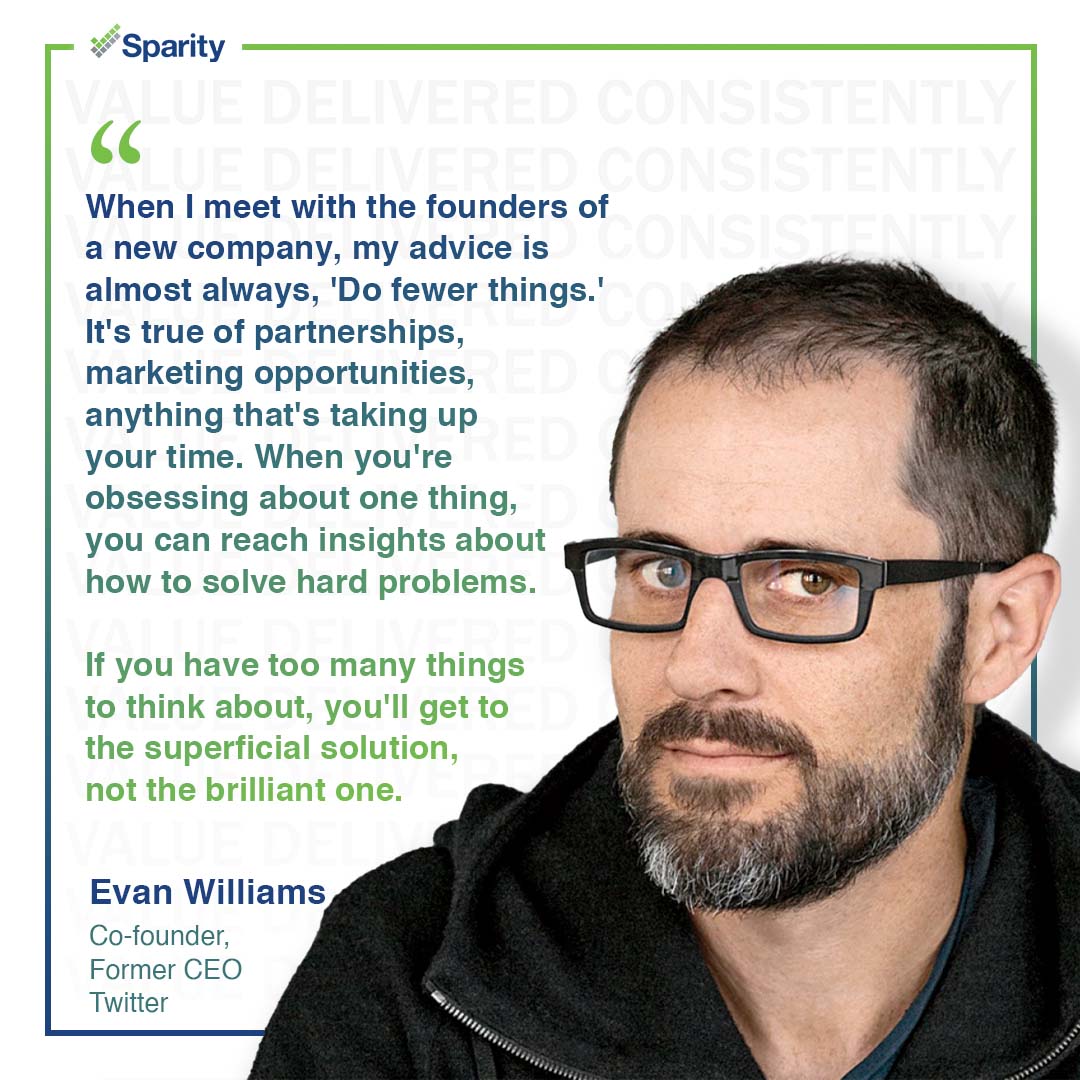
Evan Williams, the founder of Blogger and Medium, two of the largest blogging internet platforms, and co-founder of Twitter, says, “When I meet with the founders of a new company, my advice is almost always, ‘Do fewer things.’ It’s true of partnerships, marketing opportunities, anything that’s taking up your time. The vast majority of things are distractions, and very few really matter to your success. When you’re obsessing about one thing, you can reach insights about how to solve hard problems. If you have too many things to think about, you’ll get to the superficial solution, not the brilliant one.”
5. Michael Bloomberg: Constantly seek to expand your knowledge.
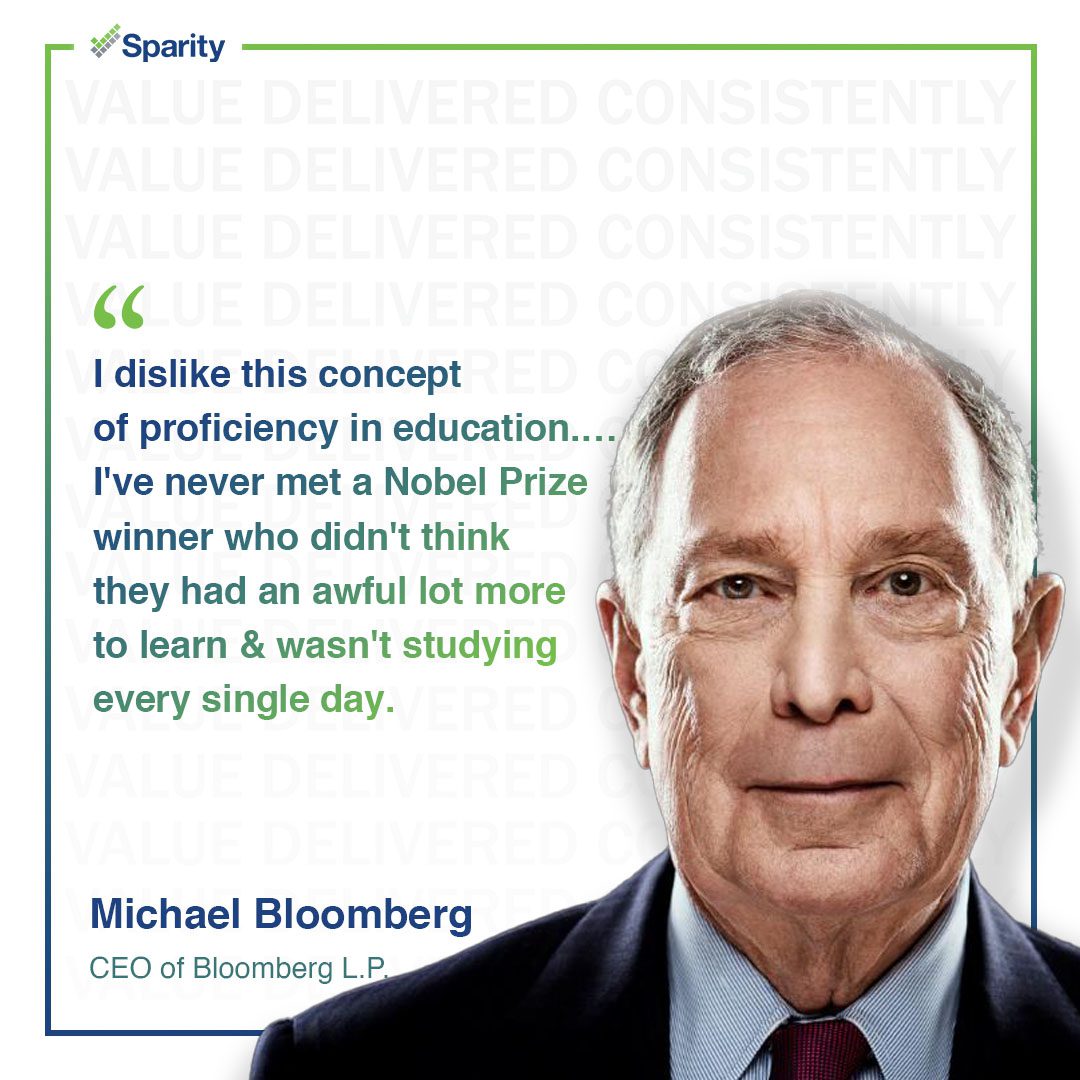
Michael Bloomberg, the co-founder of Bloomberg L.P., said, “I dislike this concept of proficiency in education.…I’ve never met a Nobel Prize winner who didn’t think they had an awful lot more to learn and wasn’t studying every single day.”
6. Elon Musk: Live your worst-case scenario to overcome your fear of failing.

Elon Musk, the Founder of SpaceX, states, “I figured if I could live off a dollar a day then, at least from a food stand point, it’s pretty easy to earn $30 a month.”
7. Steve Case: Humans are the driving force behind everything.

Steve Case, the co-founder of AOL, explains “No matter what you do in life, your ability to succeed will be largely dependent on your ability to work with people. Indeed, it has often been said that what you do is less important than who you do it with – that the people you surround yourself with, whether a spouse, or friends, or coworkers, will ultimately be the principal determinant of the course your life will take. So don’t just focus on the job descriptions, or the brand name of the organization you’re going to join – also focus on who you’ll be working for, and with.”
8. Drew Houston: Chase a tennis ball like a dog.
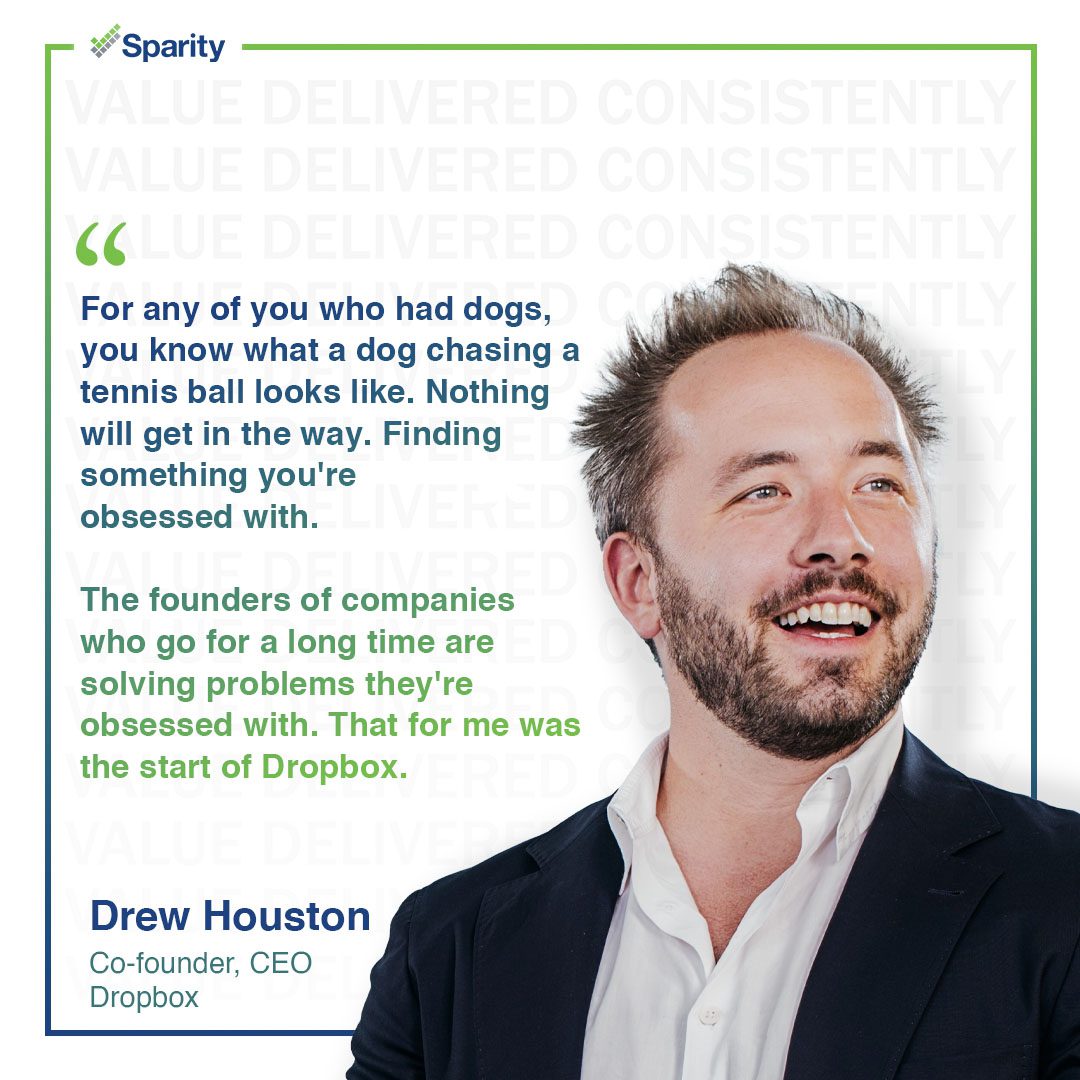
Drew Houston, the co-founder of Dropbox, said, “For any of you who had dogs, you know what a dog chasing a tennis ball looks like. Nothing will get in the way. Finding something you’re obsessed with. The founders of companies who go for a long time are solving problems they’re obsessed with. That for me was the start of Dropbox.”
9. Larry Page: Pursue ideas that scare others.
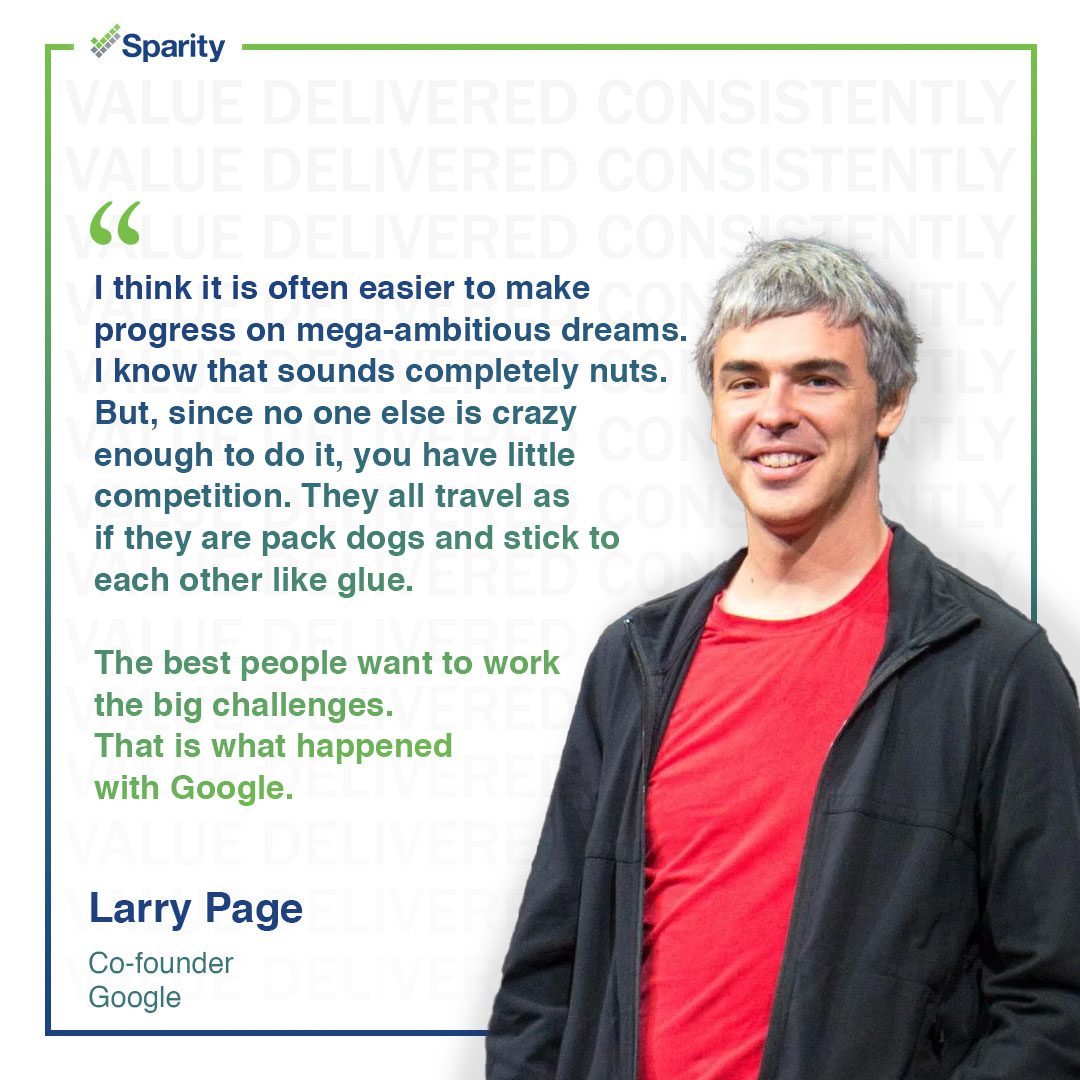
Larry Page, the co-founder of Google, states, “I think it is often easier to make progress on mega-ambitious dreams. I know that sounds completely nuts. But, since no one else is crazy enough to do it, you have little competition. There are so few people this crazy that I feel like I know them all by first name. They all travel as if they are pack dogs and stick to each other like glue. The best people want to work the big challenges. That is what happened with Google.”
10. Steve Ballmer: Be tenacious instead of passionate.
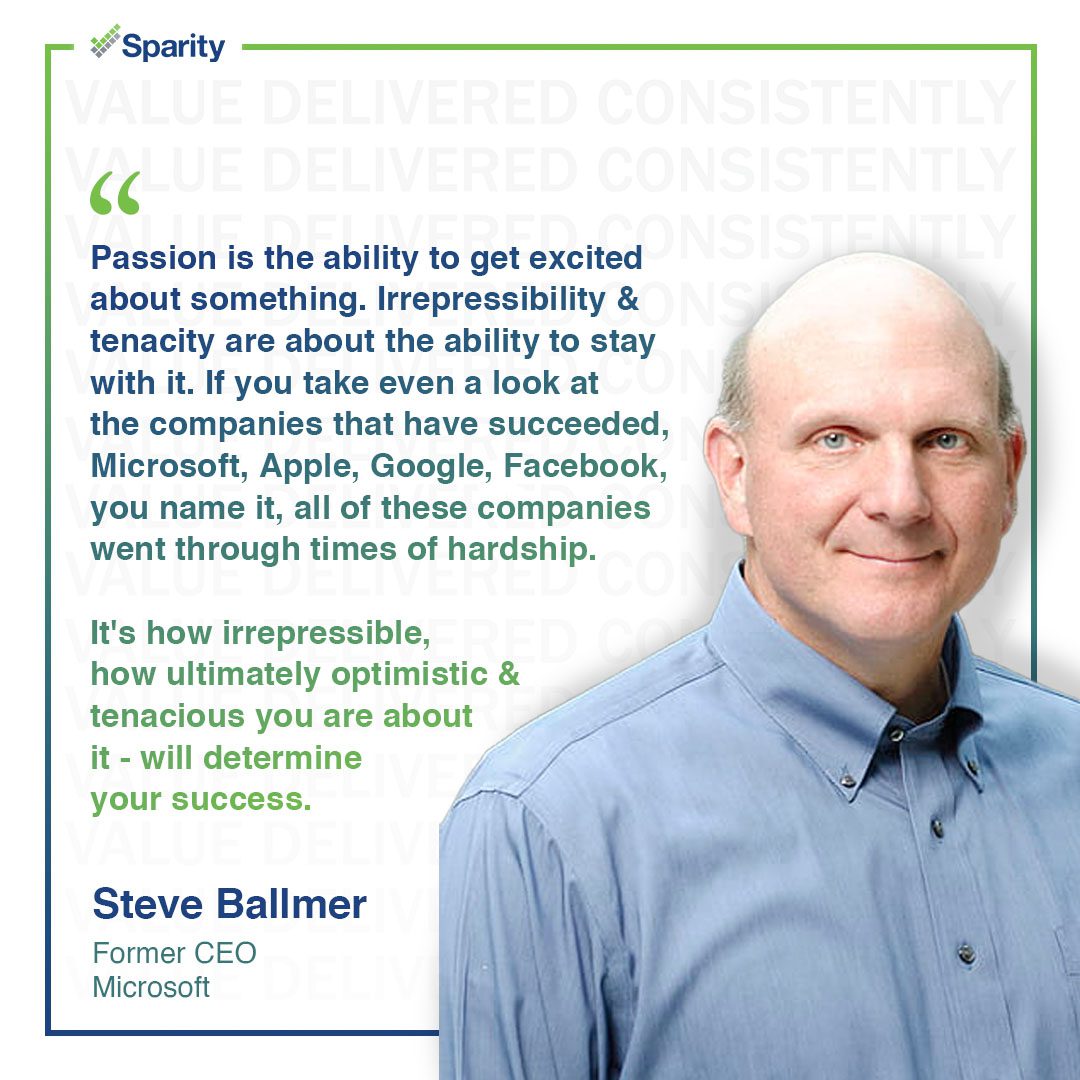
Steve Ballmer, the former CEO of Microsoft, says, “Passion is the ability to get excited about something. Irrepressibility and tenacity are about the ability to stay with it. If you take even a look at the companies that have succeeded, Microsoft, Apple, Google, Facebook, you name it, all of these companies went through times of hardship. It’s how how irrepressible, how ultimately optimistic and tenacious you are about it – that will determine your success.”
11. Larry Ellison: Success breeds in those who fear failure.
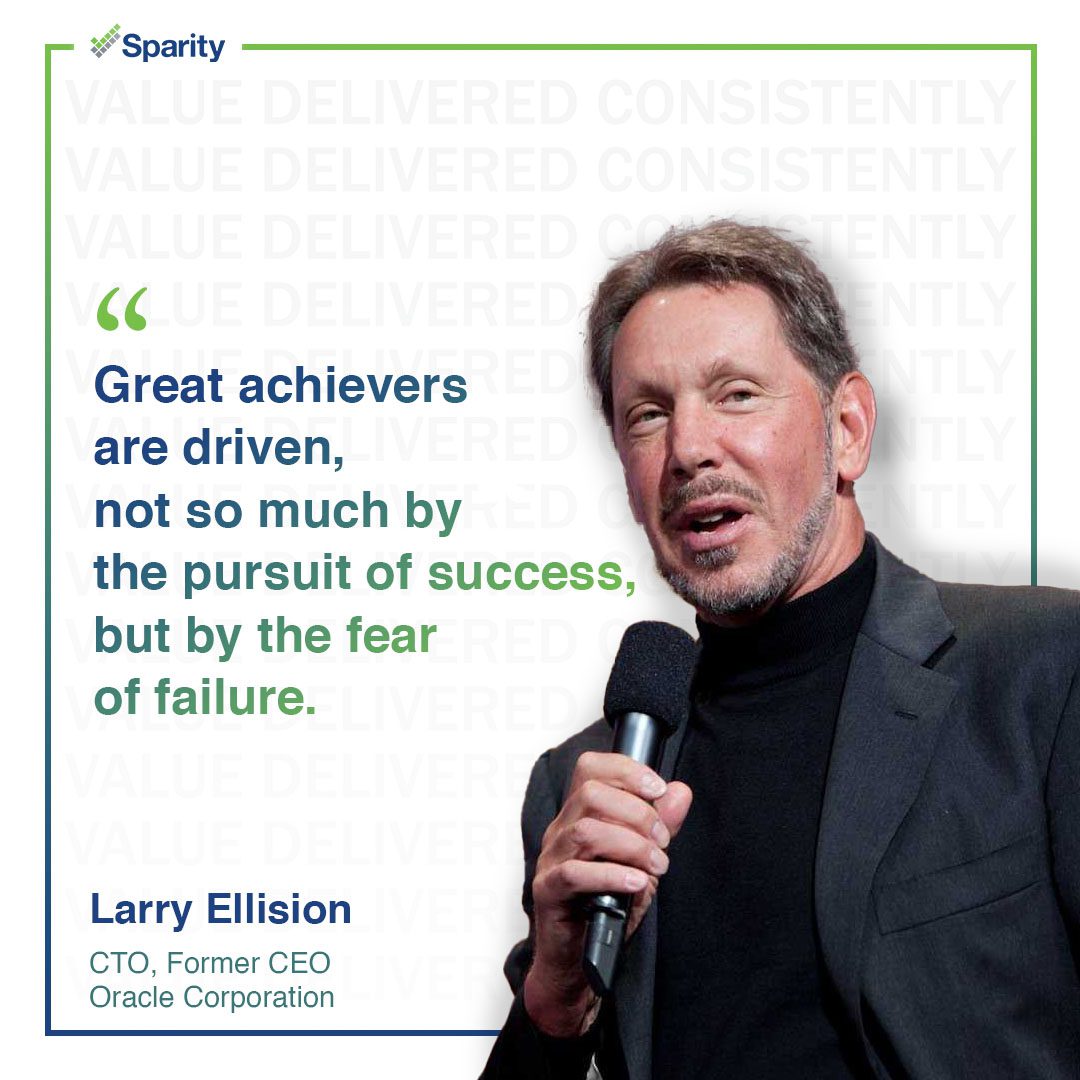
Larry Ellison, the co-founder of Oracle Corporation, says, “Great achievers are driven, not so much by the pursuit of success, but by the fear of failure.”
12. Peter Thiel: Don’t switch gears until you’ve mastered one.
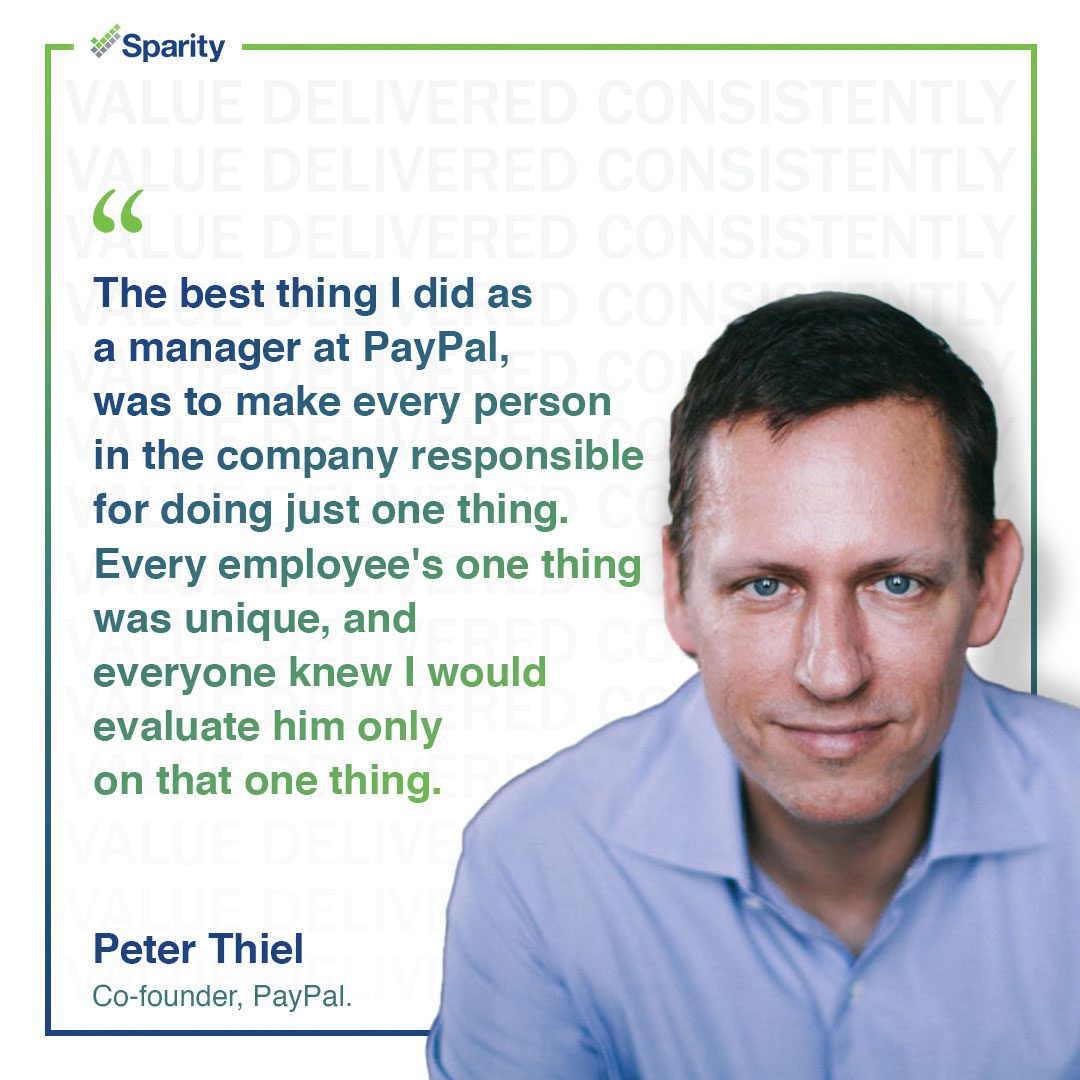
Peter Thiel, the co-founder of PayPal, believes, “The best thing I did as a manager at PayPal, was to make every person in the company responsible for doing just one thing. Every employee’s one thing was unique, and everyone knew I would evaluate him only on that one thing.”
13. Kevin Systrom: Behavior is more persuasive than words.
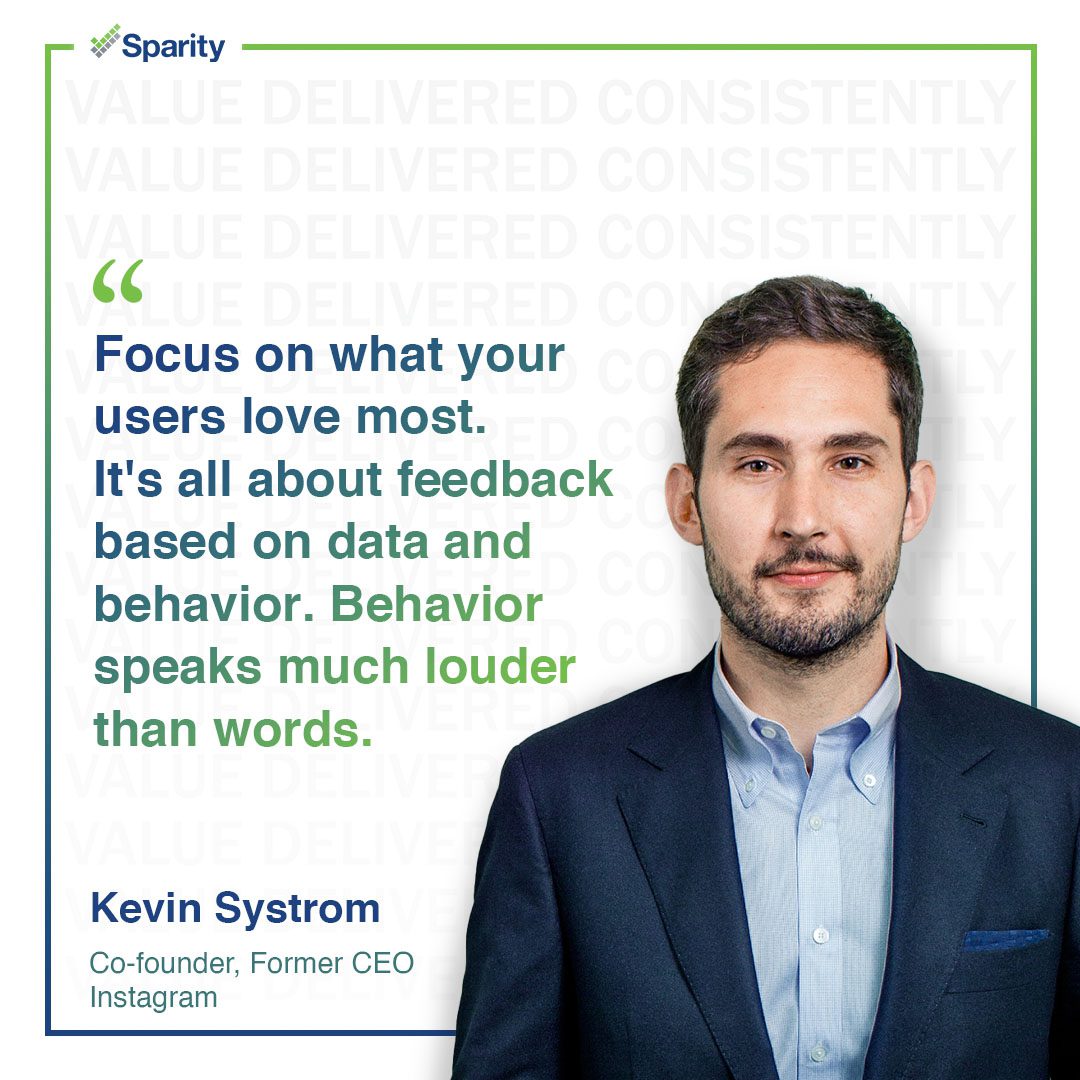
Kevin Systrom, co-founder of Instagram, states, “Focus on what your users love most. It’s all about feedback based on data and behavior. Behavior speaks much louder than words.”
14. Evan Spiegal: Concentrate on something you simply can’t give up.
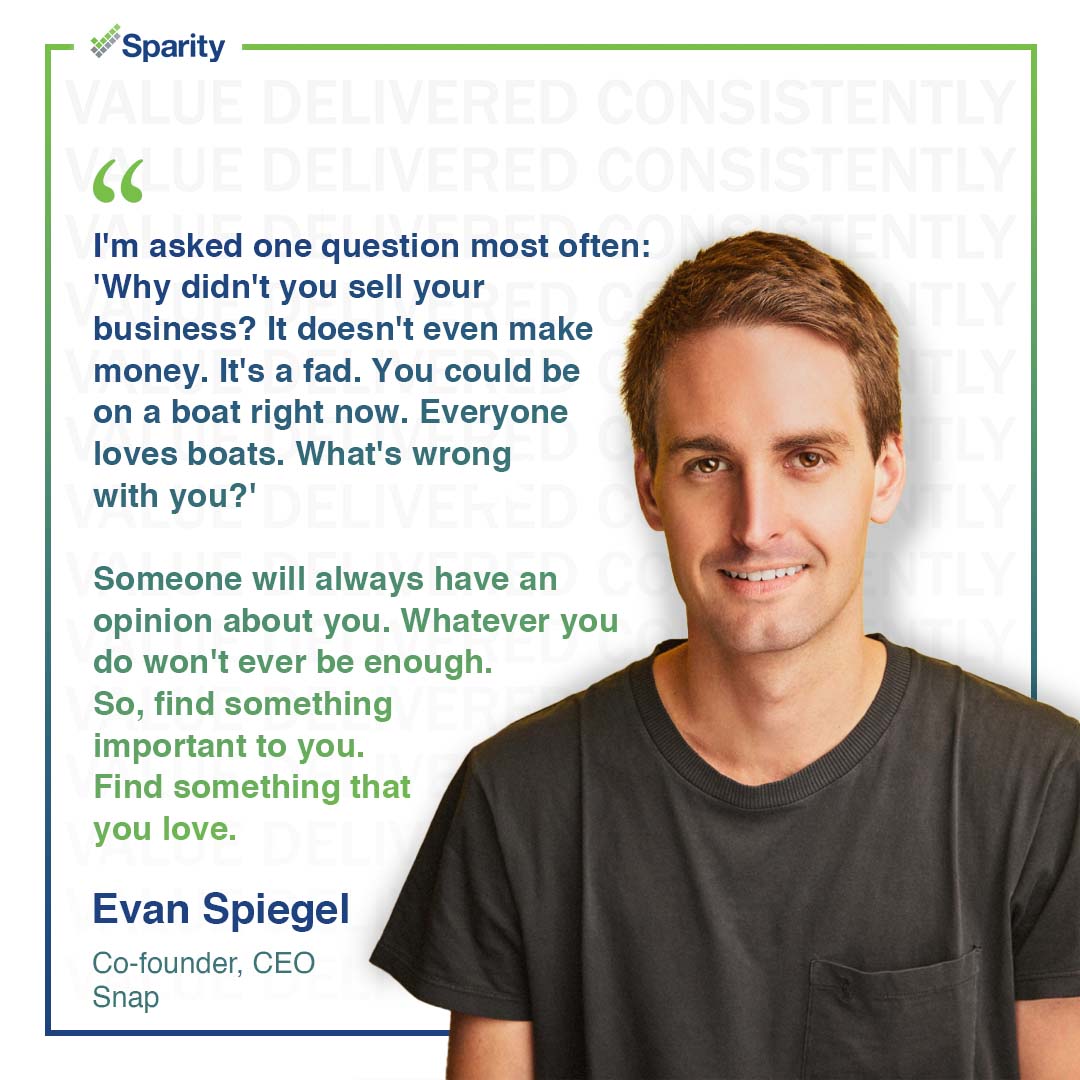
Evan Spiegal, the co-founder of Snap Inc., says, “I’m asked one question most often: ‘Why didn’t you sell your business? It doesn’t even make money. It’s a fad. You could be on a boat right now. Everyone loves boats. What’s wrong with you?’ Someone will always have an opinion about you. Whatever you do won’t ever be enough. So, find something important to you. Find something that you love.”
Entrepreneurship is a difficult endeavor that requires dedication, foresight, and persistence. Being a successful entrepreneur takes a lot of hard work. These 15 pieces of advice from successful tech entrepreneurs will make your journey considerably less daunting.




